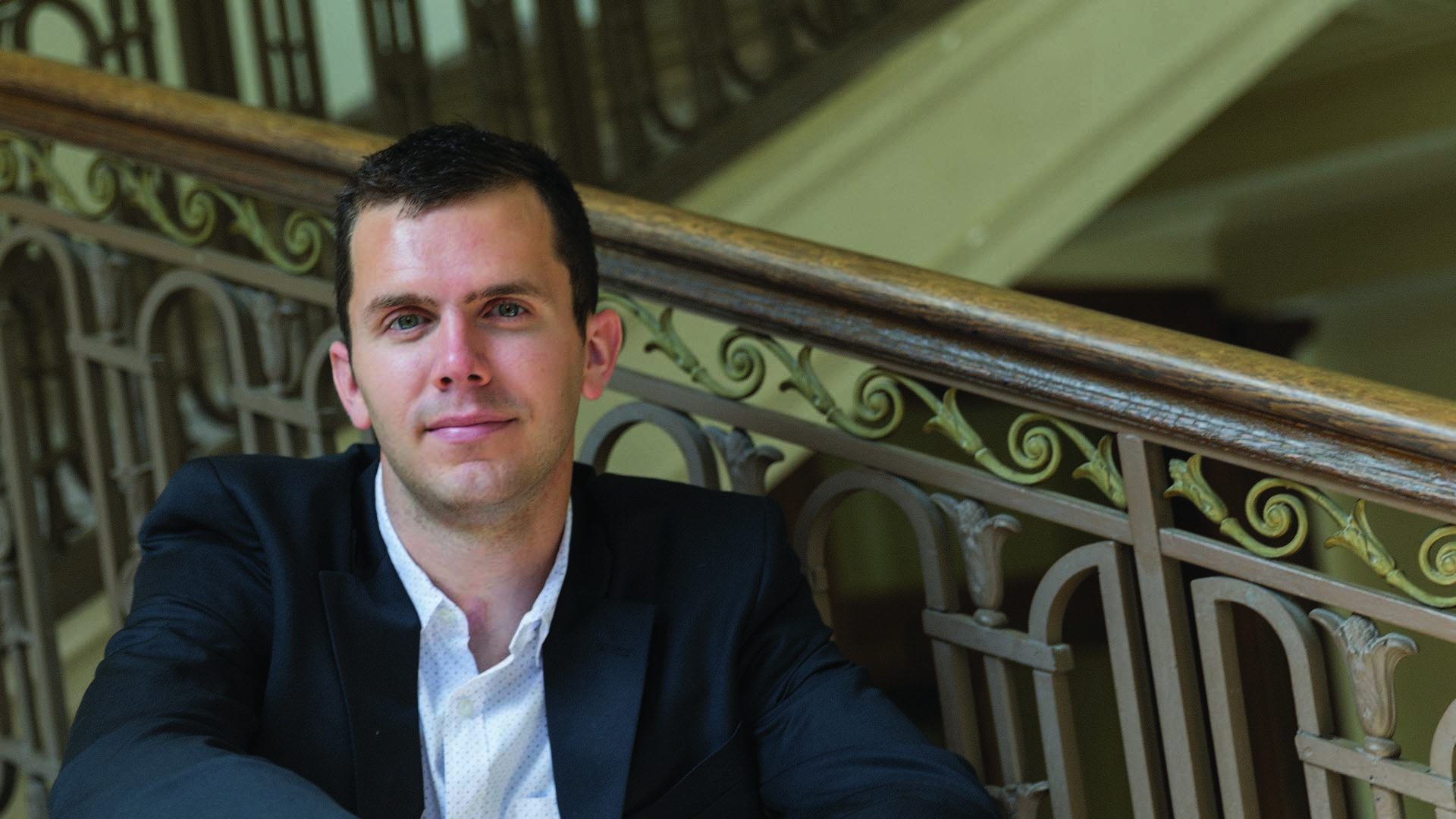“I wasn’t mad at God, but it was hard to understand why the Lord would allow my accident to happen. I had a great desire to serve Him, yet the brain injury changed my entire life.” – Caleb Jentch
“If I told you I was wearing an invisible helmet the day I was in a devastating skiing accident that almost took my life and robbed me of my short-term memory, what would you think? Even if I had died that day, the helmet of salvation through Christ would have saved me. I’m confident about where I am spending eternity. Whoever believes in Jesus will not die but have everlasting life.”
As she looked up and noticed a rescue helicopter rising from the mountain nearby, Deborah Jentsch’s cell phone rang. It was a friend calling to say that her son, Caleb, had been in a ski accident and was being air-lifted to emergency treatment in Denver. Caleb’s life hung in the balance as his parents rushed from Keystone to Denver.
When they arrived at the hospital, Caleb was just out of surgery. He had no broken bones or injured organs, but the brain injury was so severe, doctors weren’t sure Caleb would survive. To relieve the swelling, a flap the size of a small saucer had been removed from his skull. He remained in a coma, and it was a long series of ups and downs in the weeks and months ahead.
Caleb’s parents are faithful followers of Christ and raised their three children in church in their hometown of Victoria, Texas. “I placed my trust in Christ around eight, and I am so thankful for that,” said Caleb. “In high school, I had the opportunity to go on a short-term discipleship trip to Tokyo. That’s where God gave me a real call for ministry and discipleship – a desire I still feel today.”
From his first day at Texas A&M, Caleb saw his college experience as a mission field. “I joined several Christian organizations and got involved in discipling others. The Lord gave me a heart to minister to my fellow college students, and I made so many friends in the process. Many of those friends were with me when I went on that skiing trip in January of 2012.”
Caleb says his mind was blank from the point of the accident until two months after he was moved to a brain injury treatment center in Conroe, Texas. “I had no idea where I was or how I got there. At first, I couldn’t remember things moment-to-moment. Every day, I’d wake up and relearn everything I’d done the day before.”
As Caleb walked through the daily reality of brain injury recovery, he had many questions. “I wasn’t mad at God, but it was hard to understand why the Lord would allow my accident to happen,” said Caleb. “I had a great desire to serve Him, yet the brain injury changed my entire life. All I can say is in those difficult times, God never let me go. The Holy Spirit kept me close.”
Caleb’s parents were there each step of Caleb’s arduous journey. Among the many side effects of Caleb’s injury were bouts of severe anger. Caleb recalls head butting a nurse once, and throwing milk on another. “My parents were a big source of comfort to me, even as they offered spiritual encouragement to the staff and other patients around us.”
As God faithfully put the pieces of his life together, Caleb was able to return home and later, come back to Texas A&M. Whether he was talking to a friend at a local restaurant, or visiting with others on campus, Caleb eagerly turned questions about his accident into a story of God’s goodness.
“Over time, I was able to look at this injury as a tool for sharing the gospel with others. When I spoke to other Christians, I explained that God had given me joy in sharing the seeds of hope He provided me. When speaking to people who didn’t know the Lord, I shared the truth that the helmet of salvation that protected me both on the day of the accident and today – and that same salvation was available to them through a relationship with Jesus Christ.”
Caleb continues those conversations today as he works at SMU and serves in Watermark’s College Ministry. He uses the daily frustrations of dealing with a brain injury – the short-term memory loss and his struggle to remember names – as opportunities to turn a conversation toward Christ. “I can’t remember names, which can be frustrating,” said Caleb. “Even in that struggle, I tell those whose names I’ve forgotten about how God is at work in my life. There is always an opportunity to share the gospel.”
Daniel Crawford who leads Watermark’s College Ministry says that Caleb’s commitment to share his story daily is a constant source of encouragement to him and others. “He is a living illustration of how we can view our suffering with God’s redemptive perspective… a reminder that He can take our mess and turn it into a message,” said Daniel. “It definitely spurs me on to look for opportunities daily to share my own story of grace as a faithful steward of the gospel.”
